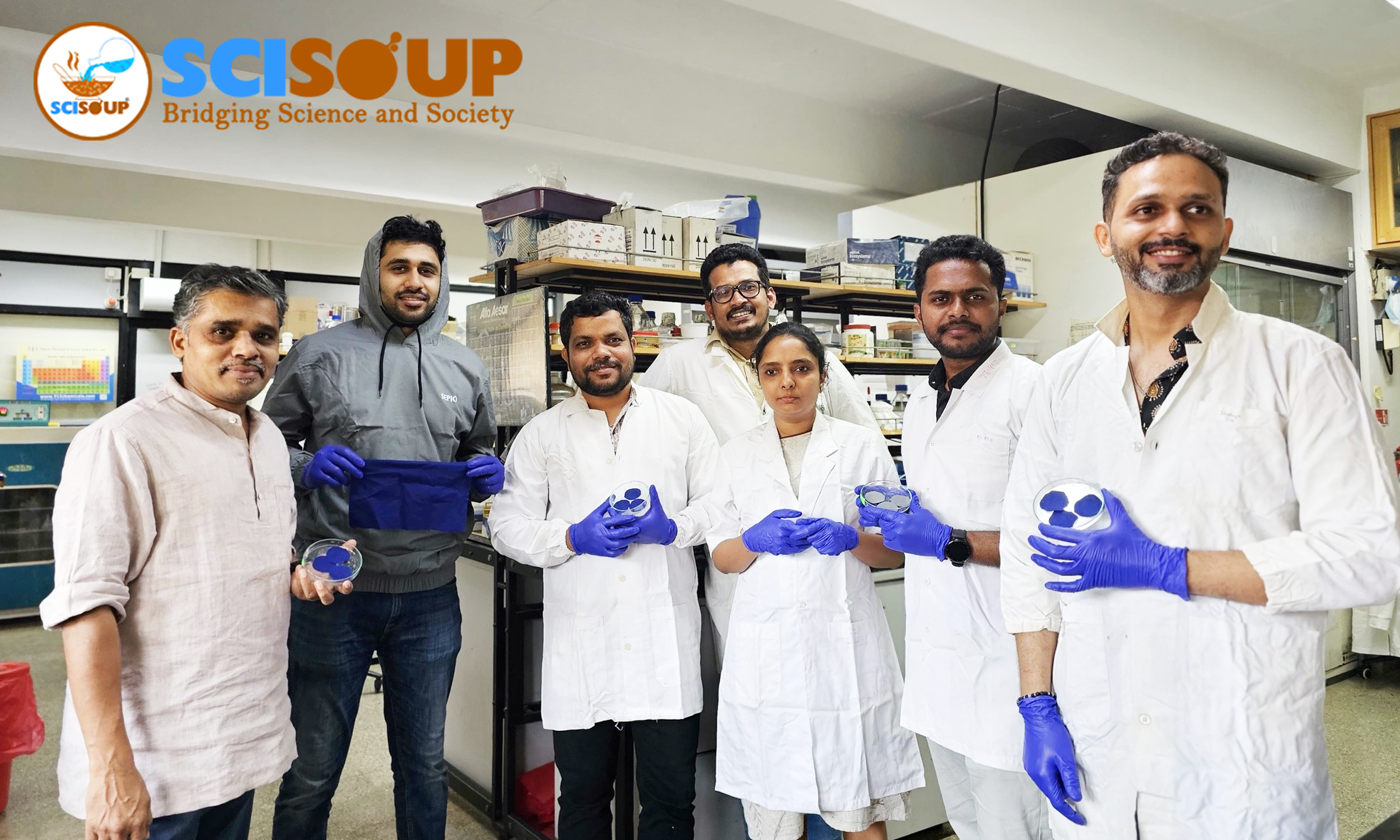
iBRIC-inStem research team in collaboration with Sepio Health Pvt Ltd develops an anti-insecticide suit “Kisan Kavach®”, to prevent insecticide-induced toxicity and lethality.
JUNE 12, 2024 | By RATNESHWAR THAKUR
Farmers in India and other developing countries often come into contact with harmful insecticides while spraying crops. These chemicals, designed to disrupt communication between nerve cells in insects, can also affect humans. Sadly, they don't discriminate between pests and people, leading to potential health issues for farmers exposed to them.
Exposure to insecticides can have serious and even deadly consequences. Farmers, especially in developing countries, often experience symptoms like fever, muscle pain, vomiting, breathing issues, tremors, and even vision loss after being exposed while spraying. Unfortunately, many suffer without proper protective gear like PPEs due to discomfort and financial strain. Despite the urgent need, there's currently no available technology to neutralize insecticides before they harm farmers.
Organophosphates are a common type of insecticides that can easily enter the body through the skin and nose during spraying. Over time, repeated exposure to these chemicals can lead to severe neurological problems. They work by blocking an enzyme called Acetylcholinesterase, which is vital for nerve communication. This inhibition can result in learning difficulties, breathing problems, paralysis, muscle weakness, and in extreme cases, even death.
A team of researchers from iBRIC-Institute for Stem Cell Science and Regenerative Medicine and Sepio Health Pvt Ltd has created a special fabric called Kisan Kavach® to protect farmers from insecticide exposure. By attaching a molecule to cotton fabric, this fabric can instantly neutralize insecticides upon contact. Wearing Kisan Kavach® can greatly reduce the risk of insecticide-related health issues for farmers. The study, led by Dr. Praveen Kumar Vemula and Mahendra K. Mohan, is published in Nature Communications.
In lab tests, the anti-insecticide fabric successfully shielded animals from lethal insecticide doses. It not only prevented harmful effects like nerve and muscle damage but also saved them from death. The fabric's effectiveness extended across various insecticides commonly used in India.
“Developing a nucleophile to deactivate various insecticides was a challenge, but attaching it to fabric was crucial, says Dr. Ketan Thorat, a co-author. Kisan Kavach® is washable and reusable for at least a year, aiming for affordability, says Dr. Omprakash Sunnapu from Sepio Health.
InStem's Kisan Kavach® combats a wide array of insecticides, including those commonly used in India. Previously, the Vemula group created a topical gel to protect the skin from insecticide, as published in Science Advances. These innovations offer practical protection for farmers.
This research was supported by extramural funding from the Department of Biotechnology, India to Dr. Vemula at iBRIC-inStem. Research team included Mahendra Mohan, Ketan Thorat, Thera Puthiyapurayil, Omprakash Sunnapu, Sandeep Chandrashekarappa, Venkatesh Ravula, Rajamohammed Khader, Aravind Sankaranarayanan, Hadi Muhammad and Praveen Vemula. Sepio Health Pvt Ltd is a spin-off company from iBRIC-inStem, founded by Vemula.
Journal Reference:
Oxime-functionalized anti-insecticide fabric reduces insecticide exposure through dermal and nasal routes, and prevents insecticide-induced neuromuscular-dysfunction and mortality
Disclaimer:
SciSoup claims no competing interest. To ensure accuracy and scientific relevance, this science blog has been reviewed by the research team associated with this study.
